Turkey coup attempt: Pride and fear one month on
- Published
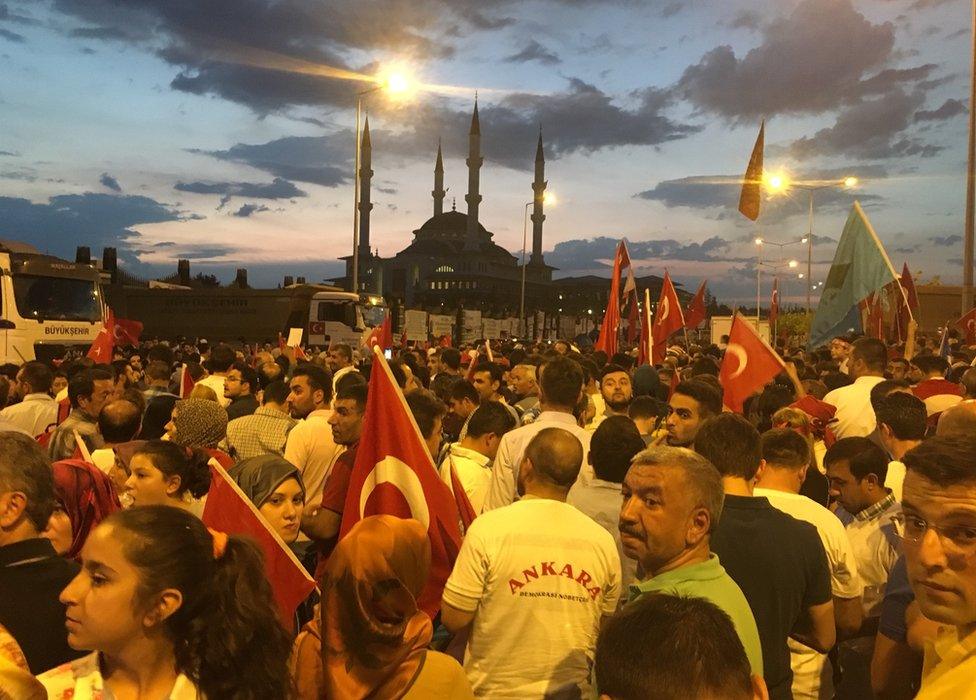
Chunks of the roof are gouged out, plaster is torn away. Halls where MPs once walked and political debate raged are now littered with mangled iron and shards of glass.
One month on, there is still a gaping hole in Turkey's political heart. And there is talk that parts of the parliament building will be kept like this: a permanent reminder of arguably the gravest attack Turkey has ever known.
It was late evening on 15 July when rockets slammed into the Grand National Assembly.
Rebel soldiers used F-16 fighter jets and helicopter gunships in an attempt to seize control. Tanks rolled into Ankara and Istanbul, taking over the Bosphorus Bridge and hitting those in their path.
Soldiers declared martial law and commandoes stormed the hotel in the seaside resort of Marmaris where President Recep Tayyip Erdogan had been staying.
They were too late. He was being evacuated to Istanbul. The phone call from his plane urging people on to the street was the decisive moment in defeating the coup attempt.
But 240 people died resisting a takeover that will forever endure in the consciousness of this country.
Turkey coup - a month on
"It was a night of horror - but we weren't scared for our lives, we were scared for our nation," says Ravza Kavakci Kan, an MP with the governing AK Party, as we tour the destruction in parliament.
"But this was the day we would defend our democracy. It brought the Turkish people together in solidarity. It was our liberation war."
In some ways, the attempted coup has united a deeply polarised country.
Four military interventions since 1960 had disrupted a still young democracy. But this time, the people resisted it - and paid a bloody price. Recep Tayyip Erdogan divides the electorate - but the message on 15 July was that Turks would choose their political future at the ballot box rather than by military takeover.
The West stays away
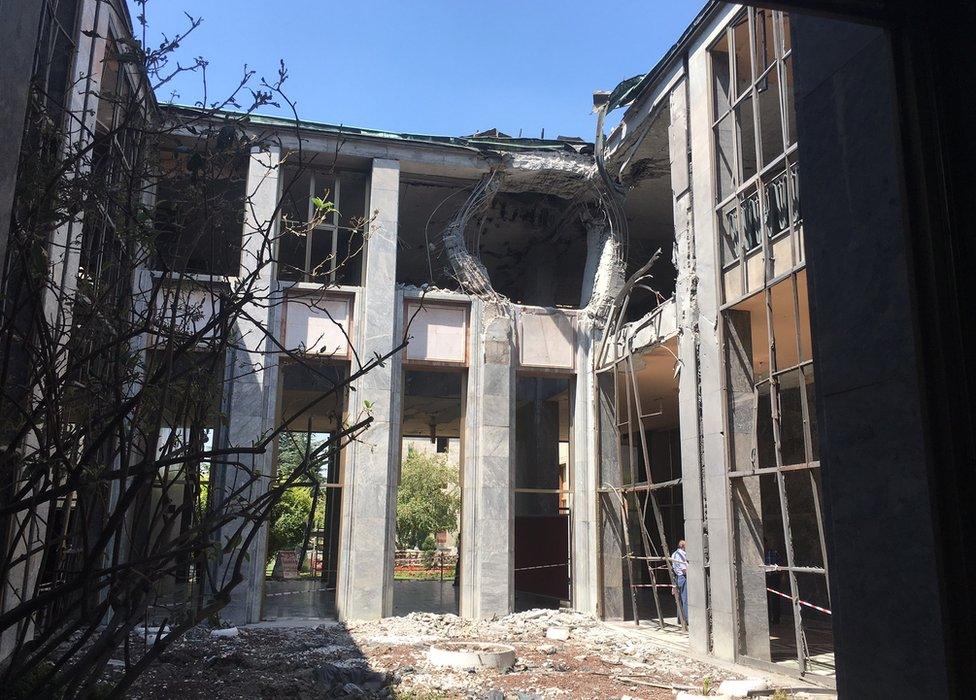
Parliament bears the scars
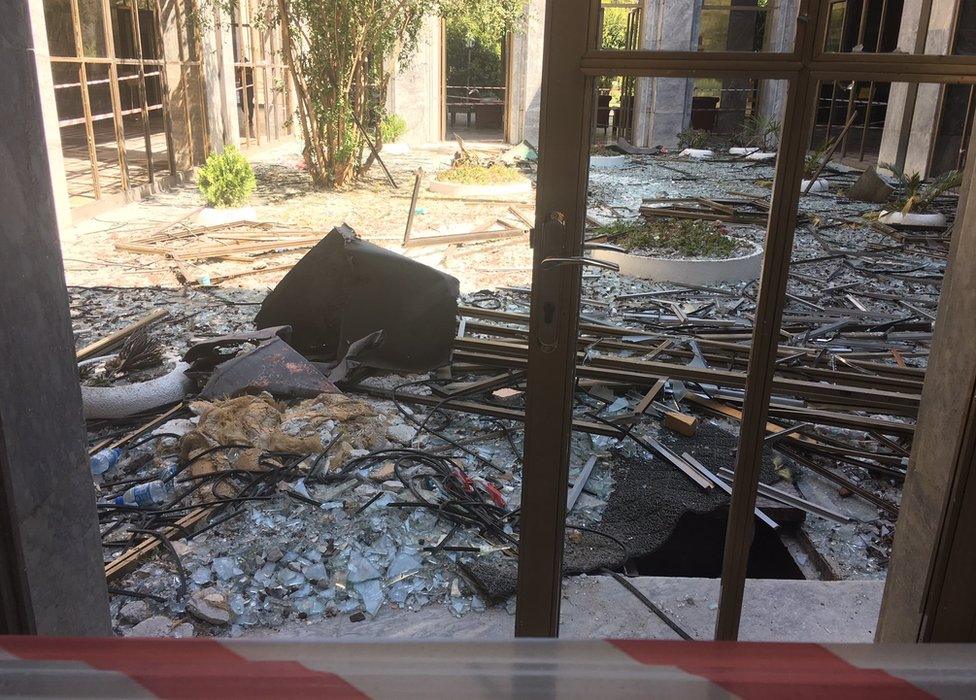
There are signs that the political chasms have narrowed: for the first time, opposition leaders attended a millions-strong rally for democracy in Istanbul led by Mr Erdogan.
But "political unity" only goes so far. The pro-Kurdish HDP party is still excluded, blamed by the government for being too close to the PKK Kurdish militants who continue to launch armed attacks. The HDP denies any link.
An unprecedented purge is the other result of the past month. More than 23,000 people have been detained or arrested and 82,000 dismissed or suspended.
They are accused of backing the coup attempt or the alleged mastermind: the cleric Fethullah Gulen, who lives in self-imposed exile in the US and whose large network of followers are said to have infiltrated Turkish institutions over many decades. The cleric, once a close ally of President Erdogan, denies any involvement.
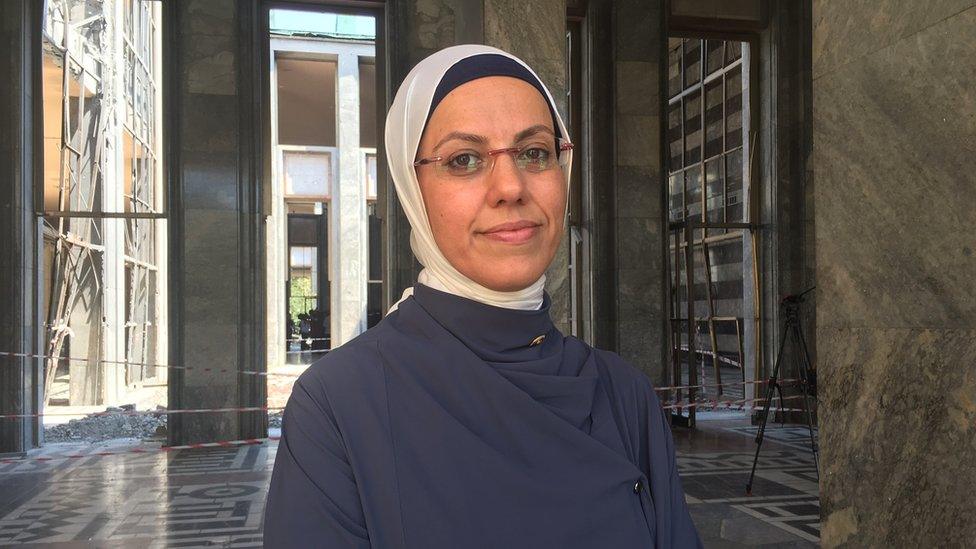
Ravza Kavakci Kan denies a purge is under way
"This is not a purge," says Ms Kavakci Kan. "We are very transparent. For the people who are being detained and investigated, there is proof. Whoever is not a part of this will go free."
Western governments condemned the coup attempt but have also criticised the wave of detentions. That has riled many here who perceive it as a lack of solidarity. Angela Merkel visited Turkey frequently during the migrant crisis but no Western leader has come in the past month to express support for a Nato member and EU candidate country.
"We are really disappointed," says Ms Kavakci Kan. "Show some compassion to those who stood in front of the tanks. Western governments are more concerned about the coup-plotters, those cowards, than they are for the Turkish people."
'Wrongly accused'
Among the institutions closed down since the coup are all military schools as the government pursues its aim of "cleansing" the armed forces.
At Sincan prison near Ankara, 142 students are being held. Beside the barbed-wire fences and watchtowers, several of their families tell me they are being wrongly accused.
On 15 July, they were transferred to Ankara for parachute training, the families say. The government suspects they were being moved to a base to take part in the coup.
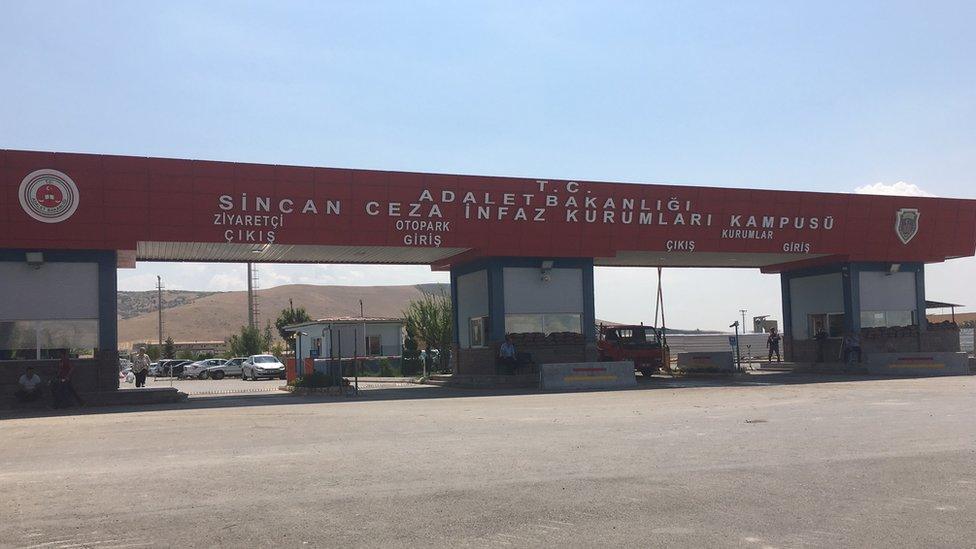
Students are being held in Sincan prison
"My brother was being trained to serve this country - he would die for it," says the sister of one, who wants to remain anonymous. "It's impossible he's a traitor. We don't accept these allegations. We're all against the coup. But the innocent ones must be released."
Another girl breaks down as she comforts her brother's young baby. "His daughter was one year old four days ago and she needs him here," she says. "Never have we been related to the Feto [Fethullah Gulen] terrorist organisation. We curse them."
It is not just the attempted takeover for which the "Gulenists" are blamed. Several damaging incidents are now being pinned on them, including the nationwide Gezi Park protests in 2013 and the shooting down of a Russian jet in Turkey last November that soured relations with Moscow - even though the prime minister and president appeared to take responsibility for it at the time.
The fear is that the Gulen label is being freely applied to a range of opponents and that in the "new Turkey" you are either seen as a staunch government supporter and anti-coup activist or a potential Gulen sympathiser.
A well-known singer had her concerts cancelled after she refused to perform at the democracy meeting in Istanbul. And the Actors' Union has warned that a "witch hunt is influencing intellectuals, journalists, artists, writers and actors who have nothing to do with Feto".
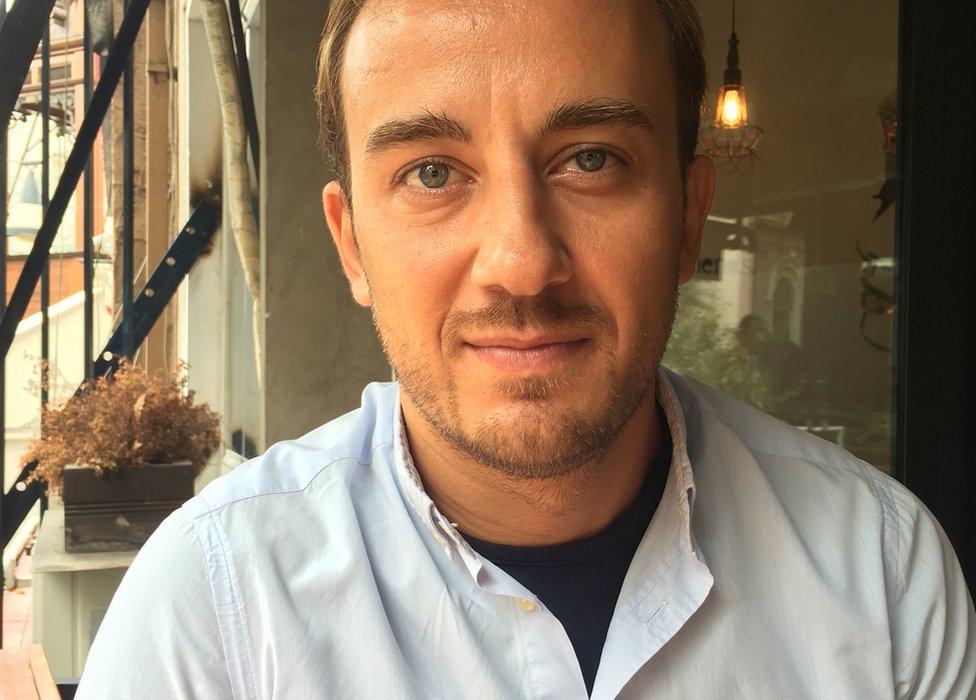
Arda Aydin says there is an attempt to silence the opposition
Arda Aydin is one of six actors who have been suspended, pending investigation. Others were laid off for "poor performance".
"We've probably been suspended because we opposed the government in the past few years - but it's laughable to say we are Gulenist," he says. "Those targeting us are trying to turn down our voices. They think we'll be scared - but the opposition can never be silenced."
For over three weeks after the coup attempt, thousands gathered every night in the main cities on a "democracy watch", listening to political speeches and waving flags.
Many came for their president - who now has the highest popularity ratings since taking office - but others came for their country. There has been an outpouring of nationalism since 15 July. The Turkey that has emerged is defiant and proud of standing up for democracy. But fear and division do still exist. And the democratic test is not over.